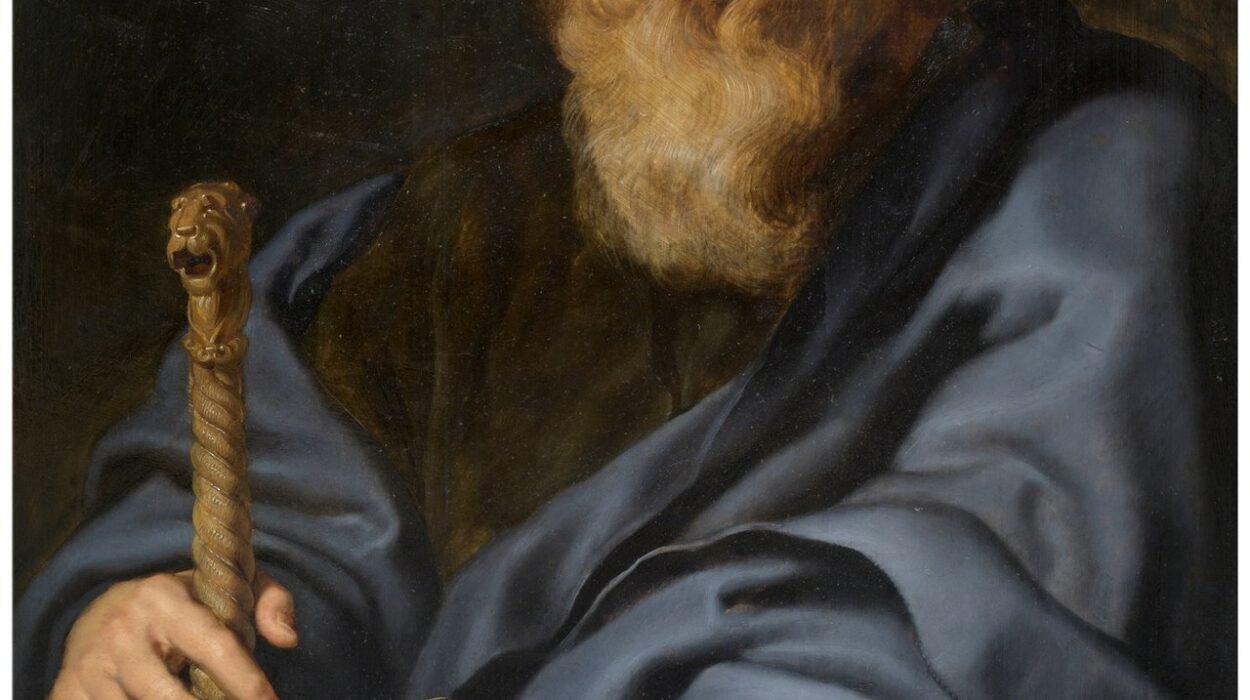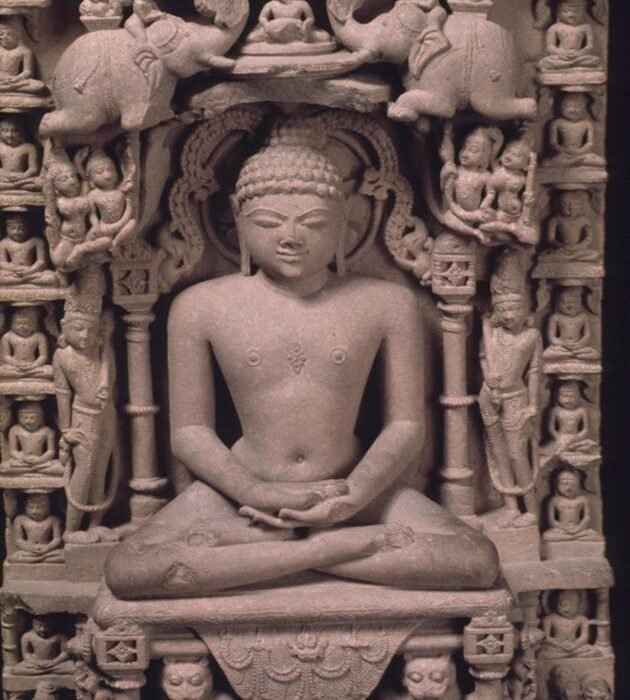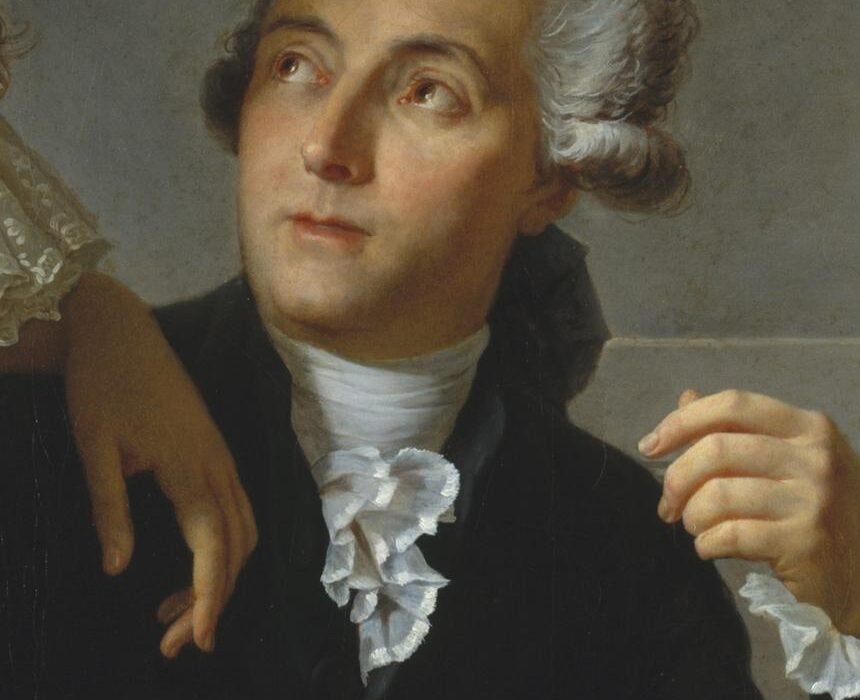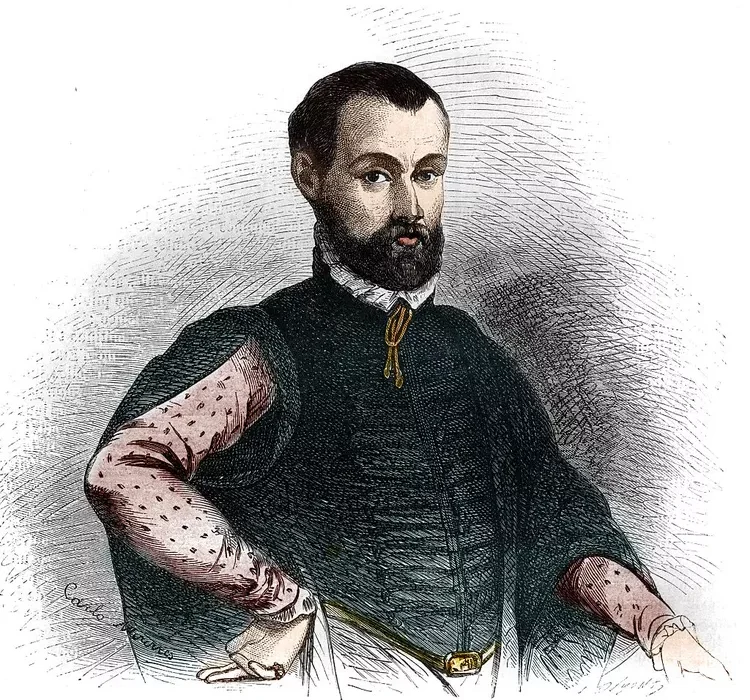Socrates (c. 470–399 BCE) was a classical Greek philosopher, widely regarded as one of the founders of Western philosophy. Born in Athens, Socrates is best known for his unique approach to philosophy, which emphasized dialogue and questioning to stimulate critical thinking and uncover underlying beliefs. Unlike many philosophers, Socrates did not write down his teachings; instead, his ideas were conveyed through the writings of his students, most notably Plato. Socrates’ method, known as the Socratic method, involves asking probing questions to challenge assumptions and explore complex concepts such as justice, virtue, and knowledge. His commitment to seeking truth and his willingness to question the status quo ultimately led to his trial and execution on charges of corrupting the youth and impiety. Socrates’ legacy endures as a symbol of intellectual inquiry and moral integrity, influencing countless philosophers and thinkers throughout history.
Life and Historical Context
Socrates, one of the most iconic figures in Western philosophy, was born around 470/469 BCE in the city of Athens, Greece. His birthplace, Athens, was a hub of cultural and intellectual activity during this time, known as the Classical period, which lasted from the 5th to 4th centuries BCE. This era saw the rise of democracy, the flourishing of the arts, and the emergence of philosophy as a distinct discipline. Socrates’ life and work were deeply intertwined with the social, political, and intellectual currents of his time, and understanding his historical context is essential to grasping the significance of his contributions.
Socrates was born into a relatively modest family. His father, Sophroniscus, was a stonemason and sculptor, while his mother, Phaenarete, was a midwife. It is likely that Socrates received a basic education typical for Athenian boys of his social standing, which would have included lessons in grammar, music, and gymnastics. However, unlike many of his contemporaries, Socrates did not pursue wealth or political power. Instead, he dedicated his life to the pursuit of wisdom and the examination of ethical questions, a path that would eventually lead to his trial and execution.
Athens, during Socrates’ lifetime, was a city-state characterized by its democratic form of government, where male citizens could participate directly in political decision-making. The city was also embroiled in the Peloponnesian War (431–404 BCE), a protracted conflict with Sparta and its allies. The war had a profound impact on Athenian society, leading to political instability, economic hardship, and a decline in the city’s moral and social fabric. These events provided the backdrop for Socrates’ philosophical inquiries, as he sought to understand the nature of justice, virtue, and the good life in a time of crisis.
Socrates’ philosophical career began later in life, as he spent much of his early years working in his father’s trade. It is said that he was influenced by the teachings of several prominent philosophers of the time, including Anaxagoras, who introduced him to natural philosophy, and Parmenides, whose ideas about being and non-being left a lasting impression on him. However, Socrates ultimately rejected the naturalistic explanations of his predecessors, focusing instead on ethical questions and the nature of human knowledge.
Unlike the Sophists, who were professional teachers of rhetoric and charged fees for their services, Socrates did not write any books or establish a formal school. Instead, he engaged in public debates and discussions with a wide range of people, from politicians and poets to craftsmen and soldiers. His method of inquiry, known as the Socratic method, involved asking a series of probing questions to expose contradictions in his interlocutors’ beliefs and encourage deeper reflection on fundamental issues.
Socrates’ approach to philosophy was both revolutionary and controversial. He challenged the traditional views of his time, questioning the authority of the gods, the justice of the laws, and the validity of popular opinions. His relentless questioning earned him both admiration and enmity, as he was seen by some as a gadfly, provoking the city to self-examination, and by others as a subversive influence, undermining the moral and religious foundations of society.
The tension between Socrates and the Athenian authorities eventually came to a head in 399 BCE, when he was put on trial for impiety and corrupting the youth. His trial, conviction, and execution are among the most famous events in the history of philosophy, and they have been the subject of much debate and interpretation over the centuries. Despite his tragic end, Socrates’ legacy has endured, and he is widely regarded as the father of Western philosophy, whose ideas have shaped the course of intellectual history for millennia.
Socratic Method and Philosophy
Socrates is perhaps best known for his distinctive approach to philosophy, which came to be known as the Socratic method. This method is not only a technique of inquiry but also a way of life, reflecting Socrates’ belief that the unexamined life is not worth living. The Socratic method involves a dialectical process, in which Socrates engages his interlocutors in a series of questions and answers, with the aim of uncovering underlying assumptions, exposing contradictions, and leading to a clearer understanding of fundamental concepts.
The Socratic method begins with Socrates asking a seemingly simple question, such as “What is justice?” or “What is virtue?” His interlocutor, often a prominent citizen or a Sophist, would typically respond with a definition or explanation. Socrates would then examine the response through further questioning, revealing inconsistencies or ambiguities in the answer. This process, known as elenchus, or cross-examination, would continue until the interlocutor either admitted ignorance or reached a more refined understanding of the concept under discussion.
One of the key features of the Socratic method is its focus on the process of inquiry rather than the final answer. Socrates believed that true knowledge could only be attained through continuous questioning and self-examination. He famously claimed that he was wiser than others only in that he knew that he knew nothing. This statement reflects his intellectual humility and his belief that wisdom is not a static possession but an ongoing pursuit.
Socrates’ method was deeply rooted in his ethical philosophy, which emphasized the importance of living a virtuous life. He argued that knowledge and virtue are intrinsically linked, positing that no one willingly does wrong; rather, wrongdoing is the result of ignorance. For Socrates, the pursuit of knowledge was not merely an intellectual exercise but a moral imperative. He believed that by gaining a better understanding of concepts like justice, courage, and piety, individuals could live more virtuous and fulfilling lives.
The Socratic method also served as a critique of the Sophists, who were influential teachers of rhetoric and persuasion in Athens. The Sophists claimed to have the knowledge and skills necessary to teach young men how to succeed in public life, but Socrates challenged their claims to wisdom. He argued that the Sophists’ emphasis on rhetoric and persuasion often led to the manipulation of truth rather than its discovery. In contrast, Socrates sought to uncover objective moral truths through reasoned dialogue, rejecting the relativism and skepticism of the Sophists.
Socrates’ emphasis on dialectical reasoning and the search for universal definitions had a profound influence on the development of Western philosophy. His method laid the groundwork for the work of his student, Plato, who expanded and systematized Socratic philosophy in his dialogues. Plato’s theory of forms, which posits the existence of eternal and unchanging ideals, can be seen as an extension of Socrates’ quest for objective truth.
However, the Socratic method was not without its limitations. Some critics argue that Socrates’ approach could lead to an endless regress of questioning, with no clear resolution or positive doctrine. Moreover, the method’s emphasis on refutation and contradiction could be seen as overly negative, focusing more on tearing down others’ beliefs than on constructing a coherent philosophical system.
Despite these criticisms, the Socratic method remains a powerful tool for philosophical inquiry and education. It encourages critical thinking, self-reflection, and intellectual humility, qualities that are essential for the pursuit of wisdom. In modern times, the Socratic method is widely used in law schools, ethics courses, and other educational settings to teach students how to analyze complex issues and engage in reasoned debate.
Socrates and Athenian Society
Socrates’ relationship with Athenian society was complex and often contentious. On one hand, he was a prominent figure in the intellectual life of Athens, engaging in public debates and discussions with people from all walks of life. On the other hand, his unconventional ideas and methods often put him at odds with the social and political establishment. Socrates’ critique of Athenian democracy, his associations with controversial figures, and his challenges to traditional religious beliefs all contributed to his eventual trial and execution.
Socrates was deeply critical of the democratic system that governed Athens. Although he participated in the political life of the city, serving as a hoplite in the Athenian army and attending the assembly, he believed that democracy was flawed because it allowed for the election of leaders who were not necessarily wise or virtuous. Socrates compared the governance of a city to the steering of a ship, arguing that just as a ship should be piloted by a skilled navigator, a city should be governed by those who have knowledge and expertise.
This critique of democracy was closely linked to Socrates’ belief in the importance of knowledge and virtue. He argued that most people were ignorant of the true nature of justice, virtue, and the good life, and that this ignorance led to poor decision-making and unjust actions. Socrates’ emphasis on the need for wise and virtuous rulers contrasted sharply with the democratic ideal of equal participation, where every citizen had the right to vote and hold office, regardless of their knowledge or moral character.
Socrates’ criticism of democracy was not limited to abstract theory; he also engaged in public debates with prominent politicians and intellectuals of his time, challenging their ideas and exposing their ignorance. This practice earned Socrates many enemies among the Athenian elite, who saw him as a subversive influence. His method of questioning often left his interlocutors embarrassed or humiliated, which only added to the animosity towards him. Moreover, Socrates’ associations with controversial figures such as Alcibiades and Critias further complicated his relationship with Athenian society. Alcibiades was a talented but reckless politician and general who defected to Sparta during the Peloponnesian War, while Critias was one of the Thirty Tyrants, a brutal oligarchic regime that briefly ruled Athens after its defeat by Sparta.
Socrates’ connection to these figures was seen as evidence of his anti-democratic leanings, even though there is no clear evidence that he supported their actions. In fact, Socrates famously refused to participate in the execution of Leon of Salamis, an act ordered by the Thirty Tyrants, despite the personal risk this posed to him. However, his refusal to publicly denounce his former associates, combined with his critique of democracy, made him a target for those who sought to restore traditional values and strengthen the democratic system.
Religious beliefs and practices were another area where Socrates clashed with Athenian society. Socrates was accused of impiety, specifically of not believing in the gods of the city and introducing new deities. This charge stemmed from Socrates’ unconventional religious views, which included a belief in a divine voice or “daimonion” that guided his actions. Socrates claimed that this inner voice would warn him against wrongdoing, but it did not instruct him on what to do. While Socrates did not deny the existence of the traditional gods, his personal religious experiences and his questioning of traditional beliefs were seen as a threat to the religious and moral order of the city.
The charge of corrupting the youth of Athens was perhaps the most serious accusation against Socrates. His critics claimed that his questioning of traditional values and his influence on young men, such as Plato and Xenophon, led them to challenge the authority of their elders and the laws of the city. Socrates, however, argued that he was not corrupting the youth but rather encouraging them to think critically and seek the truth. He believed that by challenging conventional wisdom and questioning authority, he was helping the youth develop the virtues necessary for good citizenship.
Despite these defenses, Socrates’ relationship with Athenian society ultimately led to his trial and execution. In 399 BCE, Socrates was brought to trial on charges of impiety and corrupting the youth. The trial was a highly publicized affair, with Socrates’ accusers representing the broader anxieties and tensions within Athenian society at the time. The city was still recovering from the Peloponnesian War and the political turmoil that followed, and many Athenians were eager to reassert traditional values and restore stability.
During his trial, Socrates remained unapologetic, using the opportunity to defend his way of life and critique the injustices of Athenian society. He argued that he was a benefactor of the city, acting as a “gadfly” to provoke the citizens to self-examination and moral improvement. However, his defiance and refusal to conform to the expectations of his accusers ultimately led to his conviction. Socrates was sentenced to death by drinking a cup of hemlock, a poison that would slowly paralyze and kill him.
Socrates’ execution was a turning point in the history of philosophy and Athenian society. His death was seen by many as a miscarriage of justice, a reflection of the flaws in the democratic system that he had critiqued. Plato, in particular, was deeply affected by his teacher’s death and devoted much of his life to preserving and expanding Socratic philosophy. In the years following Socrates’ execution, his ideas and methods continued to influence not only his immediate followers but also generations of philosophers who grappled with the ethical and political questions he raised.
The Trial and Death of Socrates
The trial and death of Socrates are among the most significant events in the history of Western philosophy, symbolizing the conflict between the individual and the state, and between philosophical inquiry and political authority. In 399 BCE, Socrates was brought to trial in Athens on charges of impiety and corrupting the youth. The trial, which lasted only a day, resulted in Socrates’ conviction and sentencing to death. His response to the trial, his defense, and his eventual acceptance of the death penalty have been the subject of extensive analysis and debate.
The charges against Socrates were brought by three accusers: Meletus, a poet; Anytus, a prominent politician and supporter of the democratic faction in Athens; and Lycon, an orator. The official indictment accused Socrates of “corrupting the youth” and “not believing in the gods of the city but in other new divinities.” These charges reflected broader concerns in Athenian society about the influence of new ideas, the decline of traditional values, and the perceived threat posed by Socratic philosophy to the social and religious order.
Socrates’ defense, as recorded in Plato’s “Apology,” was not a conventional legal defense. Rather than attempting to refute the charges through legal argumentation, Socrates used the trial as an opportunity to explain and defend his philosophy. He argued that he had devoted his life to the pursuit of truth and the examination of moral and ethical questions, acting in obedience to a divine command. Socrates compared himself to a gadfly, sent by the gods to provoke the city of Athens into self-examination and improvement. He claimed that his questioning of conventional beliefs and practices was intended to help his fellow citizens live more virtuous lives.
Socrates also addressed the specific charges against him. Regarding the accusation of corrupting the youth, Socrates argued that he had no intention of harming anyone and that if he had unintentionally corrupted anyone, it would be unjust to punish him for an unintended consequence. He also questioned the validity of the accusation, pointing out that none of the supposed victims of his corruption had come forward to testify against him. As for the charge of impiety, Socrates denied introducing new gods and affirmed his belief in divine powers, although his conception of the divine was different from the traditional Athenian view.
Throughout his defense, Socrates remained unapologetic and defiant. He refused to appeal to the emotions of the jury or to beg for mercy, as was customary in Athenian trials. Instead, he maintained that he had done nothing wrong and that he would rather die than give up his philosophical mission. Socrates even suggested that, rather than being punished, he should be rewarded for his service to the city. This provocative stance likely alienated many members of the jury and contributed to his conviction.
The jury, composed of 501 Athenian citizens, found Socrates guilty by a narrow margin. In Athenian legal practice, both the prosecution and the defense proposed penalties, and the jury chose between them. The prosecution proposed the death penalty, while Socrates, in keeping with his defiant attitude, initially suggested that he be rewarded with free meals for life. After some persuasion from his friends, he offered to pay a fine, but the jury ultimately chose the death penalty.
Socrates’ reaction to the verdict was one of calm acceptance. He reiterated his belief that death was not something to be feared, as it was either a peaceful sleep or a transition to another form of existence. Socrates also expressed confidence that his legacy would endure and that his ideas would continue to influence future generations. In his final address to the jury, he urged them to care for their own souls and to continue seeking the truth, even in his absence.
Socrates spent his final days in prison, where he was visited by his friends and disciples, including Plato, Crito, and Phaedo. During this time, Socrates engaged in philosophical discussions, exploring topics such as the immortality of the soul and the nature of the afterlife. These conversations are recorded in Plato’s dialogues “Crito” and “Phaedo,” which depict Socrates as calm and composed, accepting his fate with dignity and equanimity.
On the day of his execution, Socrates was given a cup of hemlock, a poison that would slowly paralyze his body. Surrounded by his friends, he drank the poison without hesitation and spent his final moments discussing the immortality of the soul. As the poison took effect, Socrates continued to speak until his voice was silenced, and he passed away peacefully.
The trial and death of Socrates have been interpreted in various ways throughout history. Some see it as a martyrdom for the cause of philosophy and free inquiry, while others view it as a tragic consequence of the tension between individual conscience and collective authority. In any case, Socrates’ death marked the end of an era in Athenian society and the beginning of a new chapter in the history of philosophy. His ideas and methods, as preserved by his disciples, especially Plato, would go on to shape the course of Western thought for centuries to come.
Socrates’ Legacy and Influence
Socrates’ legacy is one of the most enduring in the history of philosophy. Although he did not leave behind any written works, his ideas and methods were preserved and expanded upon by his disciples, particularly Plato and Xenophon, who wrote extensively about his life, philosophy, and trial. Through their writings, Socrates became a central figure in Western philosophy, symbolizing the quest for truth, the importance of ethical inquiry, and the value of critical thinking.
One of the most significant aspects of Socrates’ legacy is the development of the Socratic Method, a form of cooperative dialogue that involves asking and answering questions to stimulate critical thinking and illuminate ideas. This method has had a profound impact on the way philosophy is practiced and taught, and it remains a cornerstone of philosophical education today. The Socratic Method is not only used in philosophy but also in various fields such as law, education, and psychology, where it serves as a powerful tool for exploring complex issues and encouraging deep reflection.
Socrates’ influence is perhaps most evident in the work of his most famous student, Plato. Plato’s dialogues, many of which feature Socrates as the central character, are among the most important texts in the history of Western thought. Through these dialogues, Plato explored a wide range of philosophical topics, including ethics, politics, metaphysics, epistemology, and the nature of reality. The “Socratic” dialogues, in particular, are characterized by the use of the Socratic Method and reflect Socrates’ commitment to questioning assumptions and seeking knowledge through dialogue.
Plato’s depiction of Socrates also laid the foundation for the development of various philosophical schools of thought. The Academy, founded by Plato, became one of the most influential centers of learning in the ancient world, attracting students and scholars from across the Greek world. Plato’s student, Aristotle, who studied at the Academy, went on to become one of the greatest philosophers in history, furthering the intellectual tradition that began with Socrates.
In addition to Plato, Xenophon, another student of Socrates, contributed to the preservation of Socratic philosophy. Xenophon’s writings, including “Memorabilia,” “Symposium,” and “Apology,” offer a more practical and less metaphysical portrayal of Socrates than Plato’s dialogues. Xenophon’s Socrates is often depicted as a moral exemplar, emphasizing the importance of self-discipline, moderation, and the pursuit of virtue. While Xenophon’s works are sometimes overshadowed by Plato’s, they provide valuable insights into the historical Socrates and his interactions with Athenian society.
Socrates’ legacy extended beyond the immediate circle of his disciples, influencing later philosophical movements such as the Cynics, the Stoics, and the Skeptics. The Cynics, founded by Antisthenes, a student of Socrates, embraced the idea of living in accordance with nature and rejecting societal conventions. They valued self-sufficiency, asceticism, and the pursuit of virtue, drawing inspiration from Socrates’ emphasis on simplicity and his critique of materialism.
The Stoics, founded by Zeno of Citium, also drew on Socratic ideas, particularly in their emphasis on the importance of reason, self-control, and living in harmony with the natural order. The Stoics admired Socrates for his ability to remain calm and rational in the face of adversity, and they saw him as a model of the virtuous life. Stoic philosophy, which became highly influential in the Roman Empire, contributed to the development of ethical thought and had a lasting impact on Western culture.
The Skeptics, who questioned the possibility of certain knowledge, also looked to Socrates as an intellectual ancestor. Socrates’ claim that he knew nothing, combined with his method of questioning and exposing the ignorance of others, resonated with the Skeptical tradition. The Skeptics admired Socrates for his intellectual humility and his refusal to accept dogmatic beliefs without critical examination.
Socrates’ legacy continued to shape the course of philosophy throughout the Middle Ages and the Renaissance. Christian philosophers, such as Augustine and Aquinas, engaged with Socratic ideas as they sought to reconcile classical philosophy with Christian theology. The Renaissance saw a renewed interest in Socratic philosophy, as humanist scholars rediscovered and translated the works of Plato and Xenophon. Socrates became a symbol of the humanist ideal of the well-rounded, virtuous individual, committed to the pursuit of knowledge and the betterment of society.
In the modern era, Socrates’ influence can be seen in the work of philosophers such as Immanuel Kant, Friedrich Nietzsche, and Søren Kierkegaard. Kant admired Socrates’ commitment to moral principles and his belief in the power of reason. Nietzsche, on the other hand, was critical of Socrates, viewing him as a symbol of the decline of Greek culture and the triumph of rationalism over life-affirming values. Kierkegaard, often considered the father of existentialism, saw Socrates as a kindred spirit, someone who, like himself, grappled with the complexities of human existence and the search for meaning.
Socrates’ legacy also extends beyond philosophy. His life and death have been the subject of numerous works of literature, art, and drama. He has been depicted as a tragic hero, a martyr for free thought, and a symbol of the struggle between the individual and the state. His trial and execution have inspired countless reflections on the nature of justice, the role of the individual in society, and the value of intellectual inquiry.




